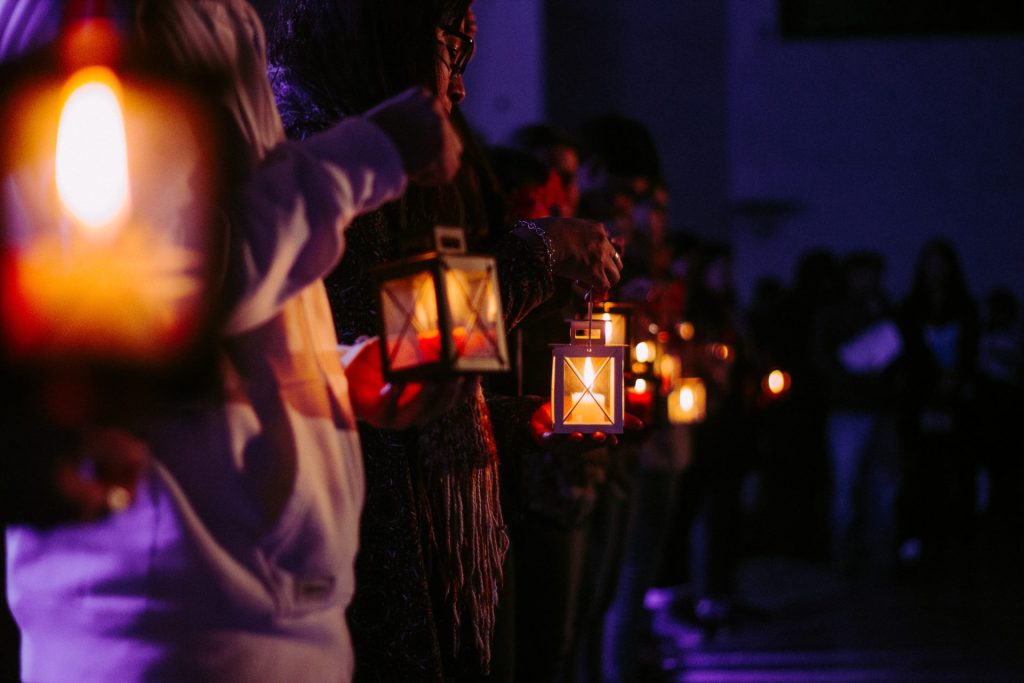
By Marie Cooke, LSM theological consultant
Through baptism, we begin a new way of life: ‘constituted among the People of God… made sharers in the priestly, prophetical, and kingly functions of Christ’ (Lumen Gentium 31), so as to continue Christ’s mission and ministry to the world as part of a community that finds God reflected in all that exists’ (Laudato Si’ 87).
A prophet is a person chosen by God to be God’s spokesperson to the people of a particular time and place. In the Hebrew Scriptures, we see prophets challenging the Chosen People when they had strayed from their covenant with God. In the New Testament, John the Baptist prepares the way for Christ by calling the people to conversion and baptism. Prophets were unpopular because they challenged the status quo if there were ‘structures of sin’ (Catechism of the Catholic Church 1869) causing people to suffer, so they needed to be people of deep faith and trust in God. Prophets also needed radical hope, which scripture tells us they received through God’s gift of grace: ‘I will pour out my spirit on all flesh; your sons and your daughters shall prophesy, your old men shall dream dreams, and your young men shall see visions’ (Joel 2:28).
Prophets were also people who listened carefully to God, and, like Mary, ‘pondered’ (Lk 2:19) in their hearts before speaking and acting. Catholic Social Teaching gives each of us this same framework to live by, in the See, Judge, Act method. Here and now, we try to discover God’s will for us and our world. We then inform ourselves about how we should live before faithfully, and perhaps courageously, putting that into practice. ‘Do not be conformed to this world, but be transformed by the renewing of your minds, so that you may discern what is the will of God—what is good and acceptable and perfect.’ (Rom 12:2).
Prophets were not archaic harbingers of doom, but rather proclaimers of the ‘good news’, of high ethical standards, still badly needed today to peacefully challenge attitudes that are harming both people and planet.
“The same mindset which stands in the way of making radical decisions to reverse the trend of global warming also stands in the way of achieving the goal of eliminating poverty” (Laudato Si’ 175).
This is not a call to an elite few, but to all Christians, working together to achieve the transformation of values and practices of our society. ‘Interdependence must be transformed into solidarity, based upon the principle that the goods of creation are meant for all.’ (Sollicitudo Rei Socialis 39).
Our world is facing an environmental crisis and is ravaged by wars, injustice and poverty which affect the lives of everyone on the planet–especially the most vulnerable. God calls us to be prophetic—to speak truth to power and challenge the structures that have allowed greed and evil to flourish. The teaching in Laudato Si’ makes us aware that the planet itself is prophetic and “cries out to us because of the harm we have inflicted on her by our irresponsible use and abuse of the goods with which God has endowed her” (Laudato Si’ 2).
Today, God is asking for prophets of integral ecology to speak out for the voiceless, to advocate for new, simpler lifestyles that will not cause harm, or waste the earth’s resources, but rather ensure equity for all, so that each person has what they need to not only survive but to thrive. This would “bring healthy pressure to bear on those who wield political, economic and social power” (Laudato Si’ 206), and encourage everyone to focus on what sustains the common good, acknowledging the interconnectedness of all living things and our common journey.
St. John Henry Newman said, “To live is to change, and to be perfect is to have changed often.” Therefore, we need to focus on using each new day we are given, to be prophetic followers of Christ, in solidarity with people around the world who are suffering because of the ecological crisis, acting as “a living witness to him, especially by means of a life of faith and charity and by offering to God a sacrifice of praise” (Lumen Gentium 12). We ask the Holy Spirit to ‘make us witnesses of the “today” of God, prophets of unity for the Church and humanity, and apostles grounded in your grace, which creates and renews all things’. (Pope Francis, Pentecost Homily 2021)





